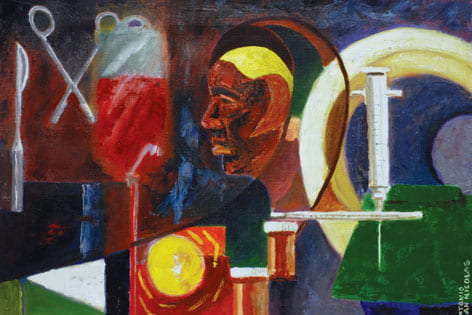New institute boosts clinical research
New facility for conducting clinical trials will take UC Irvine’s medical research to a new level, allowing overnight stays and supervised diets.

When University Hospital opened last month, it marked a new chapter for healthcare in Orange County, allowing doctors and nurses to provide the highest-quality therapies and treatments in a facility created first and foremost for patient comfort and care.
But as the county’s only teaching and research hospital, it also was designed to facilitate UC Irvine’s role in discovering cures. University Hospital features an in-patient research unit giving clinical faculty unparalleled opportunities to find treatments for cancer, diabetes, neurological diseases and other illnesses.
The Institute for Clinical & Translational Science will be the lynchpin of UCI’s clinical research efforts, which encompass more than 1,000 studies managed by hundreds of faculty and staff members.
“Our purpose is to encourage medical discoveries by enabling our medical researchers to turn their insights into breakthroughs,” ICTS director Dr. Dan Cooper says.
Clinical researchers had been hampered by a lack of dedicated patient beds and support staff. The ICTS unit in University Hospital provides these, making possible studies – such as drug trials – in which patients are confined to bed for periodic or long-term monitoring.
“These trials are necessary for all new drugs – from cancer to cholesterol control,” says Dr. Randall Holcombe, associate vice chancellor of research, who helps oversee clinical studies and trials in the School of Medicine. “They require that subjects have frequent tests, and we need committed bed space and support staff to do that.”
Having this in-patient care capability will allow UCI researchers to participate in national clinical trials in ways they haven’t been able to before, he says, adding that it “puts UCI in a whole new league.”
An oncologist researching colon cancer prevention, Holcombe says the ICTS unit could, for example, host critical early-stage pharmacokinetic studies. These determine how new drug compounds are absorbed in the body, and they require blood or urine samples every 15 or 30 minutes. ICTS also could accommodate studies, such as those for Alzheimer’s disease, in which patients require special diets and bedside care for an extended period.
ICTS is housed in a 1,500-square-foot unit on University Hospital’s sixth floor; it features six patient beds, a laboratory, a kitchen for the preparation of customized meals, and a telecommunications center.
In addition, ICTS personnel will be on-site to help UCI researchers identify, design and execute clinical studies.
“Our expectation is that ICTS will generate new knowledge of immediate and long-term importance to the healthcare of people everywhere,” Cooper says. “ICTS will inspire the next generation of healthcare professionals to focus on the possibilities of medicine and turn these ideas into reality.”